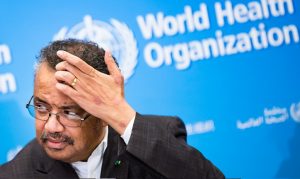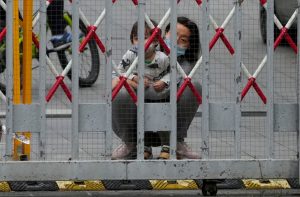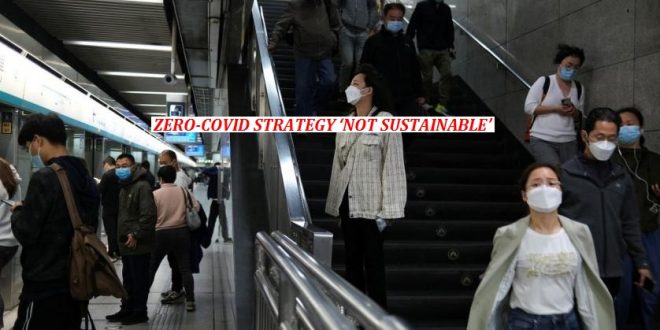11-05-2022
BEIJING/SHANGHAI, May 11 (Reuters) – China hit back on Wednesday against what it called “irresponsible” comments by the head of the World Health Organization, who described the country’s uncompromising and increasingly painful “zero COVID” policy as “not sustainable.”
 The policy has placed hundreds of millions of people across dozens of cities under various degrees of movement restrictions, most dramatically in Shanghai, causing significant economic damage in China and beyond and fuelling wide-spread frustration.
The policy has placed hundreds of millions of people across dozens of cities under various degrees of movement restrictions, most dramatically in Shanghai, causing significant economic damage in China and beyond and fuelling wide-spread frustration.
Officials in Shanghai, now in its sixth week under a sweeping lockdown, said on Wednesday half the city had achieved “zero COVID” status, but restrictions would remain in place.
China’s uncompromising approach stands in contrast to most other parts of the world, where governments have chosen to live with the virus.
In rare public comments on a government’s policies, WHO Director-General Tedros Adhanom Ghebreyesus said on Tuesday China’s zero-tolerance strategy is not sustainable and that it was time for a change in approach.
Tedros’ comments were not covered in China’s state media and were censored on social media, with the only official response coming at a regular foreign ministry news conference.
 “We hope the relevant individual can view Chinese COVID policy objectively and rationally and know the facts, instead of making irresponsible remarks,” spokesman Zhao Lijian said.
“We hope the relevant individual can view Chinese COVID policy objectively and rationally and know the facts, instead of making irresponsible remarks,” spokesman Zhao Lijian said.
China’s leaders last week threatened action against critics of the policy, which authorities say “puts life first.”
Critics of the WHO have previously accused the U.N agency as being too close to China, which the WHO denies.
China has pointed to the millions of deaths caused by COVID in other countries. Its official toll since the virus first emerged in the city of Wuhan in late 2019 is just over 5,000, far below the nearly 1 million deaths in the United States.
New modelling by scientists in China and the United States sees the risk of just over 1.5 million COVID deaths if China ditches its current policy without any safeguards such as ramping up vaccination and access to treatments. (Int’l News Desk)
 Pressmediaofindia
Pressmediaofindia




